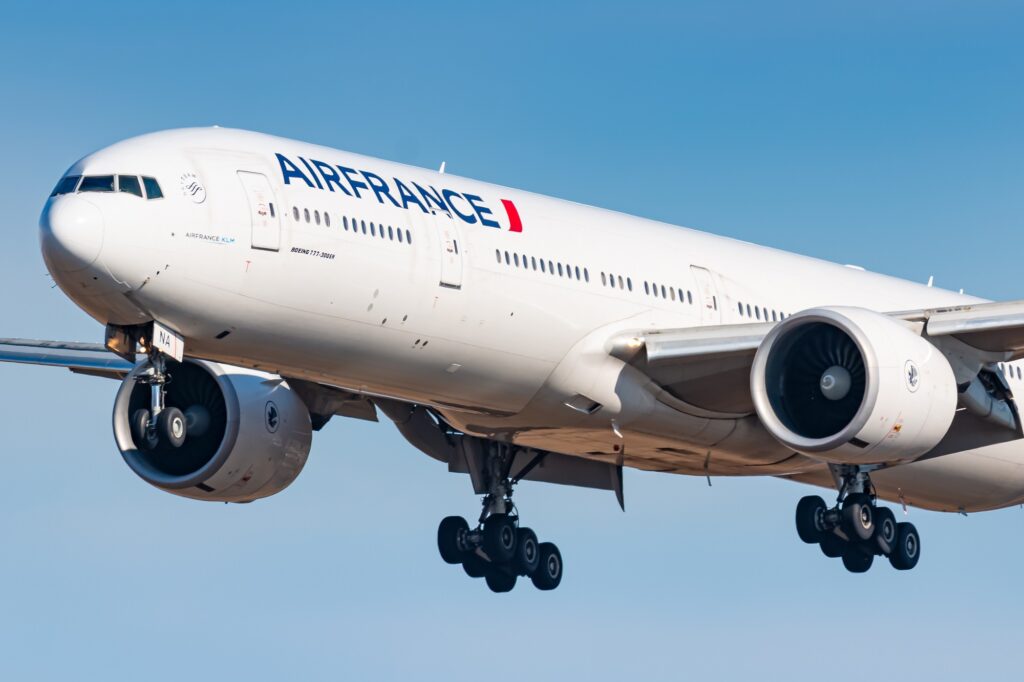The United States (US) Federal Aviation Administration (FAA) issued a final rule Airworthiness Directive (AD), addressing a potential scenario where a fault current or a lightning strike could result in potential fuel tank explosions.
Following the inspections of the fuel systems by Boeing, the FAA issued a notice of proposed rulemaking (NPRM) for all Boeing 777 models, requiring operators of the type to make changes to the aircraft’s fuel system. According to the AD, published on February 28, 2023, airlines flying any type of the 777 will need to install Teflon sleeves, cap sealing of fasteners, conduct detailed inspections, and impose corrective actions.
“This AD also requires revising the existing maintenance or inspection program, as applicable, to incorporate more restrictive airworthiness limitations (AWLs),” read the directive. “The FAA is issuing this AD to address arcing inside the main and center fuel tanks in the event of a fault current or lightning strike, which, in combination with flammable fuel vapors, could result in a fuel tank explosion and consequent loss of the airplane,” added the FAA.
In total, the regulator received eight comments from various stakeholders, including the Air Line Pilots Association (ALPA), airlines, and Boeing itself. While ALPA supported the NPRM without change, other parties provided feedback regarding the directive.
Adopting as proposed to ensure air safety
However, following the revision and response to the comments, the FAA ruled that “air safety requires adopting this AD as proposed”.
Airlines, including Air France, American Airlines, Emirates, FedEx, KLM, United Airlines, and the Original Equipment Manufacturer (OEM), Boeing, shared their views regarding the directive.
For example, Air France, KLM, and United Airlines requested that the FAA mandate Boeing Alert Service Bulletin (SB) 777-57A0050, Revision 7, rather than Revision 6. That was because following the French airline’s discussions with the OEM, certain errors with the sixth revision would be corrected in the following SB. The FAA denied the motion, as “it is not known when Revision 7 will be available,” even if the agency is aware of the errors in Revision 6.
Meanwhile, KLM specified that some technical details should not be included in the AD, because “it could possibly lead to confusion and mistakes by airline staff”. The FAA added additional information to clarify the location of the fasteners.
FedEx asked the agency to add a section “Credit for Previous Action”, in order not to repeat actions required by previous SB Revisions. However, the FAA argued that actions carried out prior to the SB Revision 6 do not mean that airlines have already addressed the unsafe condition.
Emirates requested that airlines could use alternatives to the Teflon sleeve, citing material shortages. For now, though, the agency does not allow the use of alternatives but will review them once Boeing or an operator submits an alternative method of compliance (AMOC) and will consider substitute materials “if sufficient data are submitted to substantiate that the change would provide an acceptable level of safety”.
The AD affects 282 airplanes in the US, with a total cost of more than $14.05 million for all airlines. Per aircraft, the cost is up to $49,835, including $46,325 for labor and up to $3,510 for parts. Furthermore, the FAA noted that there could be additional costs to do the necessary corrective actions based on the inspections of the Boeing 777s. While the agency “has no way of determining the number of aircraft that might need these actions”, it estimated that the corrective actions would set back operators up to $5,720 per aircraft.
The directive is effective April 4, 2023, and operators must adhere to the requirements identified in Boeing’s SB 777-57A0050, Revision 6, dated August 18, 2021, and carry out all applicable actions. Furthermore, carriers have 60 days after the effective date to adjust their maintenance and inspection programs, including the AWLs specified by this AD.
READ MORE: Looking to prevent fuel tank explosions on the Boeing 747, FAA issues AD

